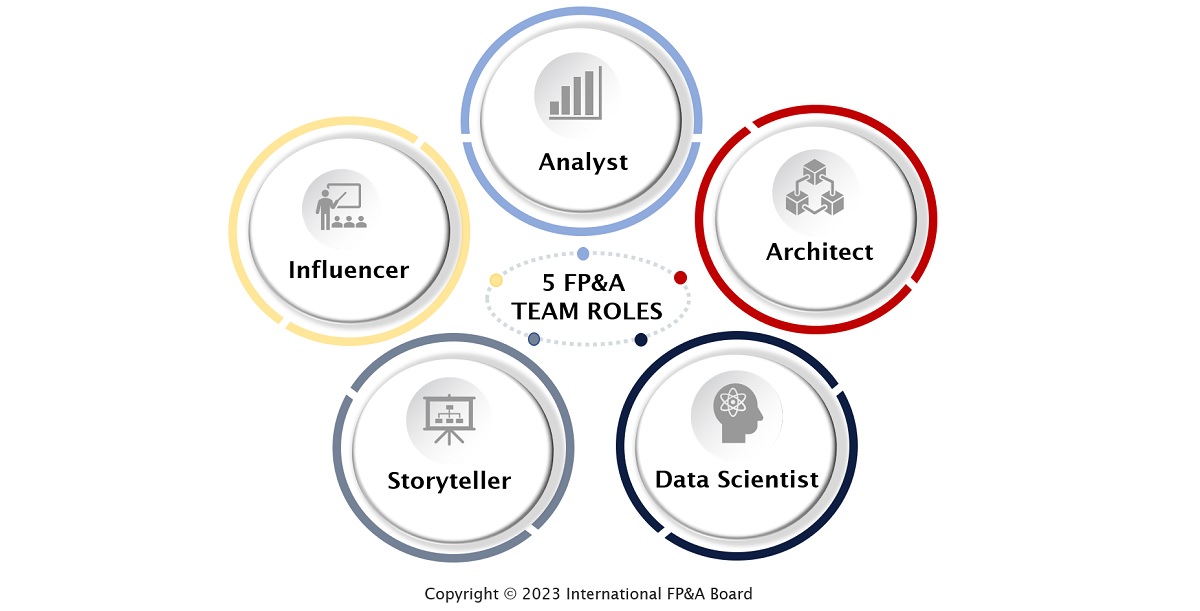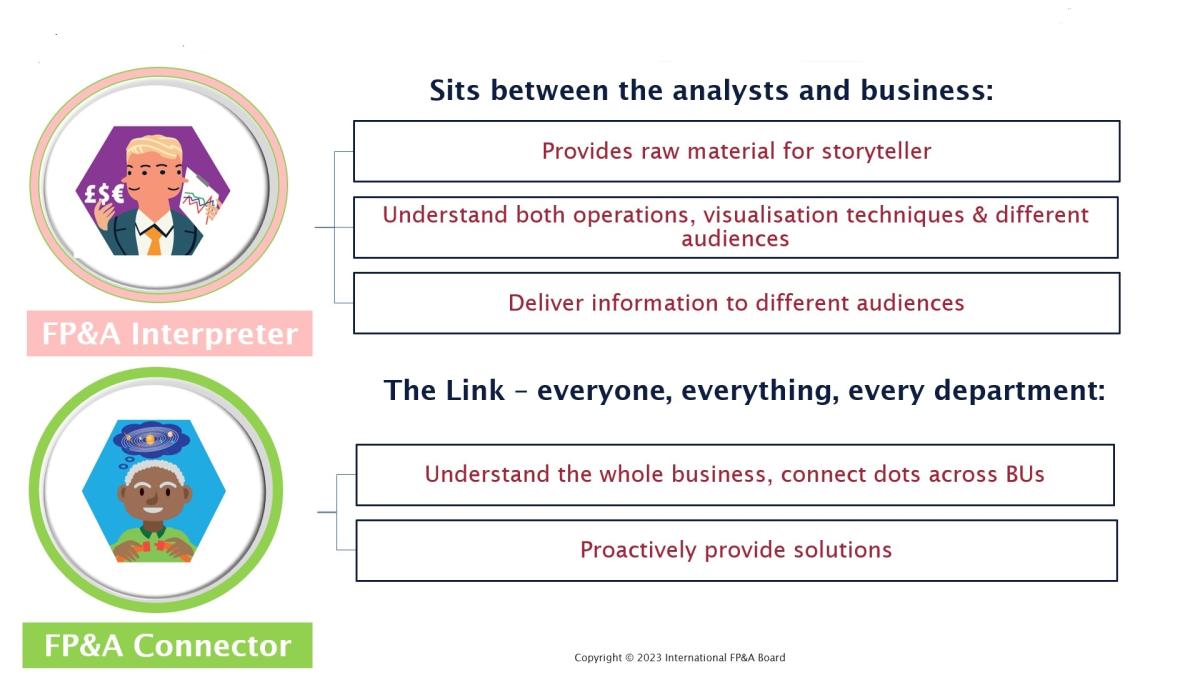The Dutch chapter of the International FP&A Board came together in Amsterdam on October 5, 2023, for a session dedicated to the following topic: "Five Critical Roles for Building a World-Class FP&A Team". The meeting was a structured and engaging discussion supported by case studies and breakouts, enabling a deeper understanding of this critical theme. 37 senior subject matter experts and thought leaders from local and global companies such as Shell, Unilever, Danone, Philips, L'Oréal, Kraft Heinz Company, Coty, Stryker and many others attended the event. The meeting was sponsored by Workday in partnership with International Workplace Group.

Figure 1: Amsterdam FP&A Board, October 2023
Financial Planning and Analysis (FP&A) professionals are at the forefront of driving strategic decisions in today's dynamic business landscape. The FP&A role has evolved, demanding a unique set of skills, a deep understanding of business operations, and the ability to harness the power of data analytics. In this article, we delve into the top skills, emerging trends, and potential challenges that FP&A practitioners can face when building their FP&A teams.
Top Skills for FP&A Professionals
At the beginning of the event, Larysa Melnychuk asked the participants to name a crucial skill for an FP&A professional. Some of the different replies we heard that evening deserve special attention.
Storytelling
Effective communication through storytelling is paramount in the world of FP&A. Beyond numbers and data, FP&A professionals must craft narratives that convey financial insights clearly and compellingly. A well-told story can engage stakeholders, guide them through complex financial information and influence them to take appropriate actions. Storytelling is more than just a communication tool; it's a universal language transcending numbers. A compelling financial story involves a journey, a plan, challenges, surprises, a hero (the company), and the tools that help along the way. Effective framing allows the audience to draw their conclusions and fosters better engagement and understanding.
Business Understanding
FP&A professionals are no longer confined to their spreadsheets. They must have a profound understanding of the broader business context in which they operate. It includes knowledge of industry trends, market dynamics, and the competitive landscape.
Data Analytics
In the age of big data, data analytics skills are indispensable. FP&A teams must leverage data to uncover valuable insights, make informed predictions, and support strategic decision-making. Proficiency in data analysis tools and techniques is a must.
Top Trends Shaping FP&A
The audience also discussed top trends shaping FP&A, outlined below.
AI and Data
Technology and analytics are revolutionising FP&A. Artificial Intelligence and advanced data analytics are being harnessed to automate routine tasks, improve forecasting accuracy, and provide deeper insights into financial data. That is why it is not a surprise that FP&A functions are increasingly aligning with analytics teams. Being tech-savvy is essential in this collaborative environment, and benchmarking against industry standards can help organisations gauge their progress. The FP&A Trends Maturity Model serves as a valuable tool for guidance.
Values (ESG and Company Values)
Environmental, social, and governance (ESG) considerations are becoming integral to FP&A. Companies are increasingly aligning their financial planning with their ESG goals and values, reflecting a growing awareness of sustainability and responsible business practices.
Multifunctional Skills

Figure 2: Five FP&A Team Roles
FP&A roles are evolving to encompass multifunctional skills. Professionals are expected to collaborate across departments, bridging the gap between finance and other organisational functions. Larysa Melnychuk, the discussion facilitator, shared the information about five critical FP&A team roles and emphasised the importance of developing multi-skilled and collaborative FP&A departments.
According to FP&A Trends Group, there are five already existing FP&A Roles, and many of us have already been aware of them.
These are:
- FP&A Storyteller,
- FP&A Data Scientist,
- FP&A Architect,
- FP&A Analyst,
- and FP&A Influencer.
In addition, there are two emerging roles whose importance continues to grow:
- FP&A Interpreter,
- and FP&A Connector.

Figure 3: Two Emerging FP&A Roles: FP&A Interpreter and FP&A Connector
FP&A professionals are encouraged to take ownership of their tools and skills. While collaboration with IT is essential, in-house development can empower finance teams to be agile and responsive. Achieving 80% proficiency can be sufficient, and a data-skilled workforce can help organisations reach FP&A excellence.
Challenges in Advancing FP&A
On top of that, the Amsterdam Board members addressed the key challenges FP&A practitioners can face when building their top-tier teams.
Legacy Software and Data Format
Outdated systems and data formats can hinder the adoption of modern FP&A technologies. Organisations may need to invest in upgrading their infrastructure to fully benefit from technological solutions.
Underinvestment
Some companies underinvest in their FP&A functions, limiting their ability to adopt advanced technologies and develop their talent pool.
Lack of Prioritisation
FP&A improvements may not always be prioritised within organisations, which can delay advancements. FP&A leaders must also decide where to allocate finite resources as they endeavour to support the organisations in which they operate.
Group Work: Further Skills That Can Compliment an FP&A Professional

Figure 4: Group Work, Amsterdam FP&A Board, October 2023
Close to the end of the meeting, the participants were split into three groups to discuss three crucial aspects of building a modern FP&A team: leadership, functional skills, and Business Partnering. As per the Amsterdam FP&A Board Members, FP&A professionals should embody the following qualities:
Leadership
Take ownership, set clear goals, and understand the implications of financial decisions. Competency and value addition lead to earning a seat at the decision-making table.
Functional Skills
Continuously assess your skills in alignment with organisational needs. Understand the business thoroughly and be open to disrupting the status quo (supported by data) when necessary.
Business Partnering
Build relationships before diving into the numbers. Never underestimate the potential of FP&A to add value to the organisation.
Conclusions
In a rapidly evolving business landscape, mastering these skills, embracing emerging trends, and overcoming challenges will position FP&A professionals as invaluable contributors to their organisations' success. The forum ended with a lively networking session.









